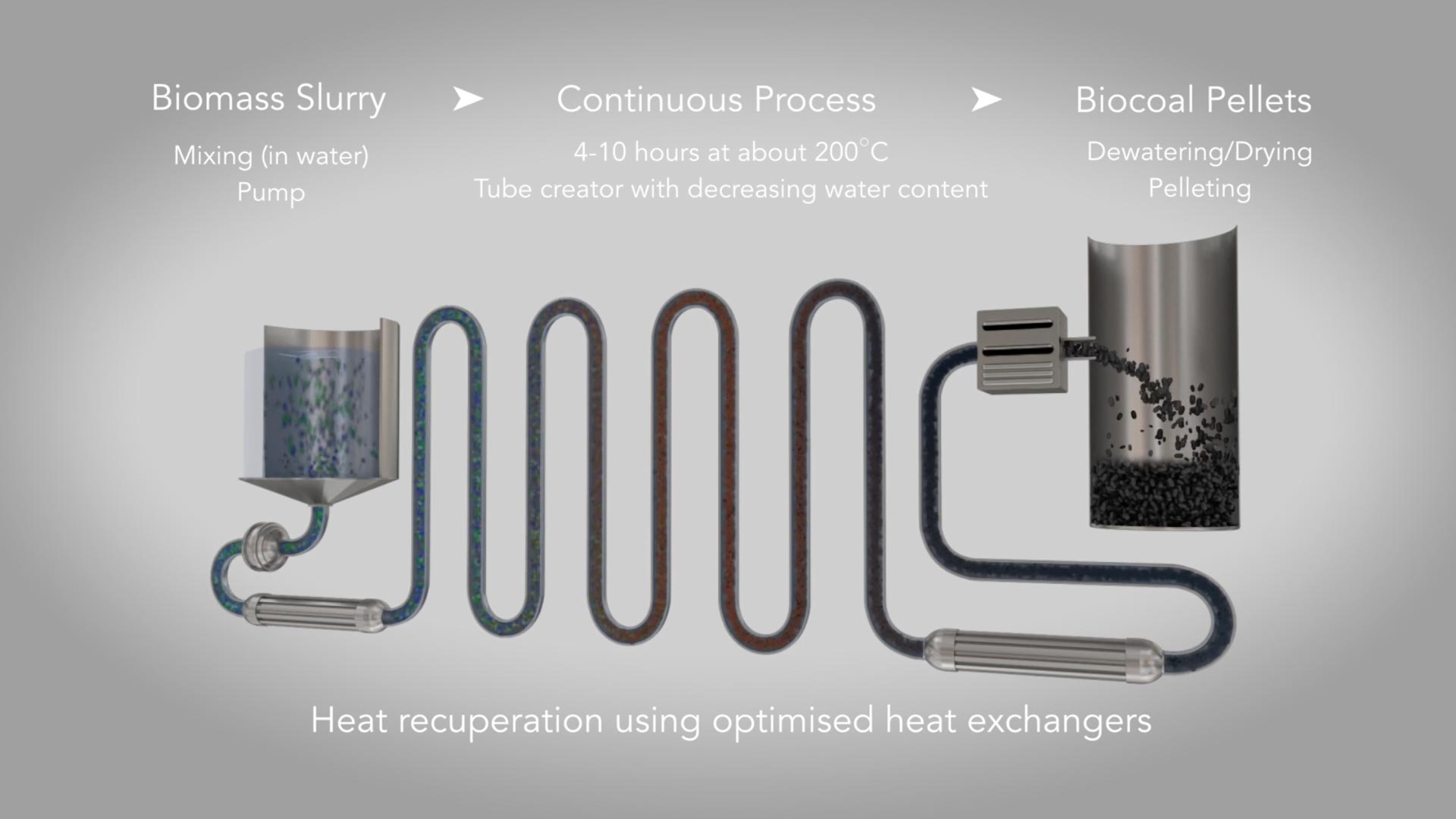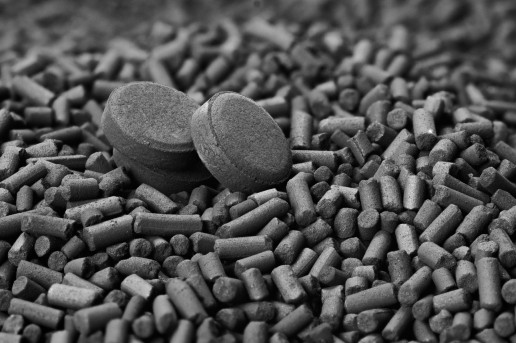Turns all wet and dry biomass efficiently into fuel
We take any type of biowaste and mix it with water to create a ‘soup’. We then cook the soup at oven temperature pressurised up to 25 bar. During cooking the soup turns into a black sludge which is then dewatered and the remaining black powder (biocoal) is pelletised.
Household waste
Garden waste
Bagasse
Coffee grounds
Straw
Brewers grains
Rice husks
Cocoa pod husks
Palm kernel shells
Mushroom compost
Algae
Our Technology
Antaco’s engineering innovation allows the commercialisation of the hydrothermal carbonisation (HTC) process that has the ability of significantly addressing the major issues of waste and energy. Our technology delivers the most efficient organic waste conversion available on the market thus providing a valuable addition to the circular economy as well as a solution to our modern day carbon problem.
The conversion is simple. Organic waste is fed into our patented reactor, heated to oven temperature and pressurised. Under these conditions the natural process of hydrothermal carbonisation (HTC) takes place.
The Result
A biofuel classed as carbon neutral which can be used as fossil coal replacement, activated carbon and as soil improver.
“… the HTC process is far superior compared to previous biomass conversion processes relating to the avoidance of CO2 emissions.”
Dr. Peter Brandt – Federal Office of Consumer Protection and Food Safety, Berlin
Advantages of our HTC process
Filtration
Reduces waste
Anti-clogging
Enables 24/7 operation
Energy saving
Recycles heat from process
Double feeding technology
Increases production capacity
Antaco’s technological solution converts any type of biomass with any level of moisture content into a solid biofuel within 4 to 10 hours in a continuous and efficient manner. The biofuel produced, biocoal, has very similar properties to fossil coal and has the highest heat value of any solid biomass fuel on the market. It can be used as a direct replacement for fossil coal in existing power stations.



